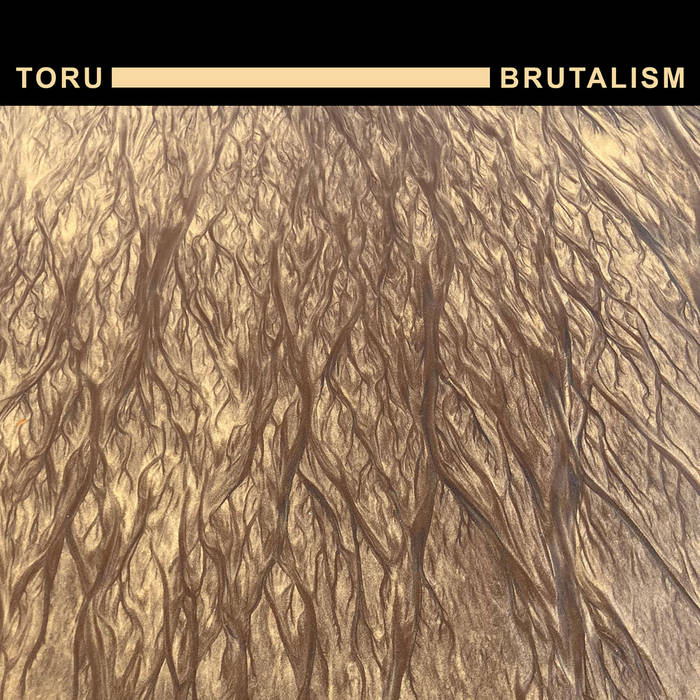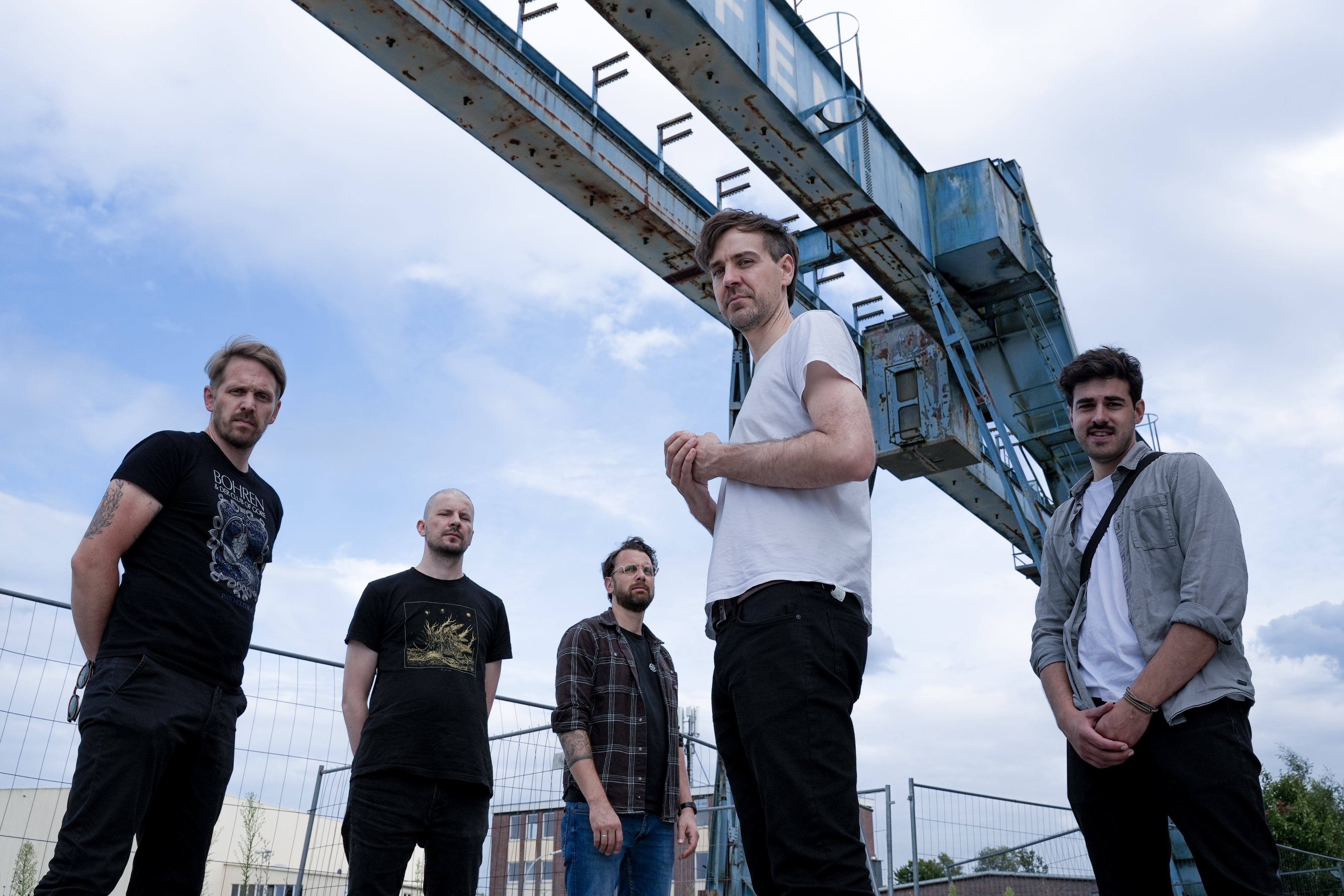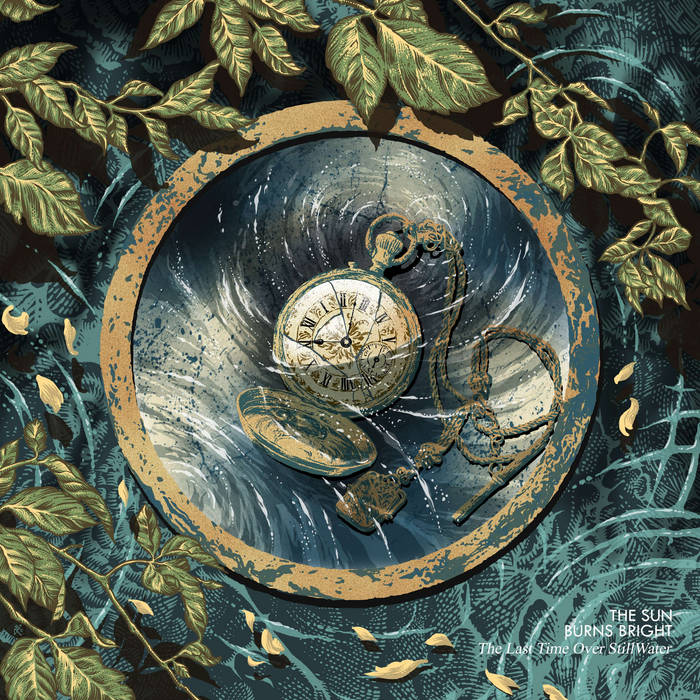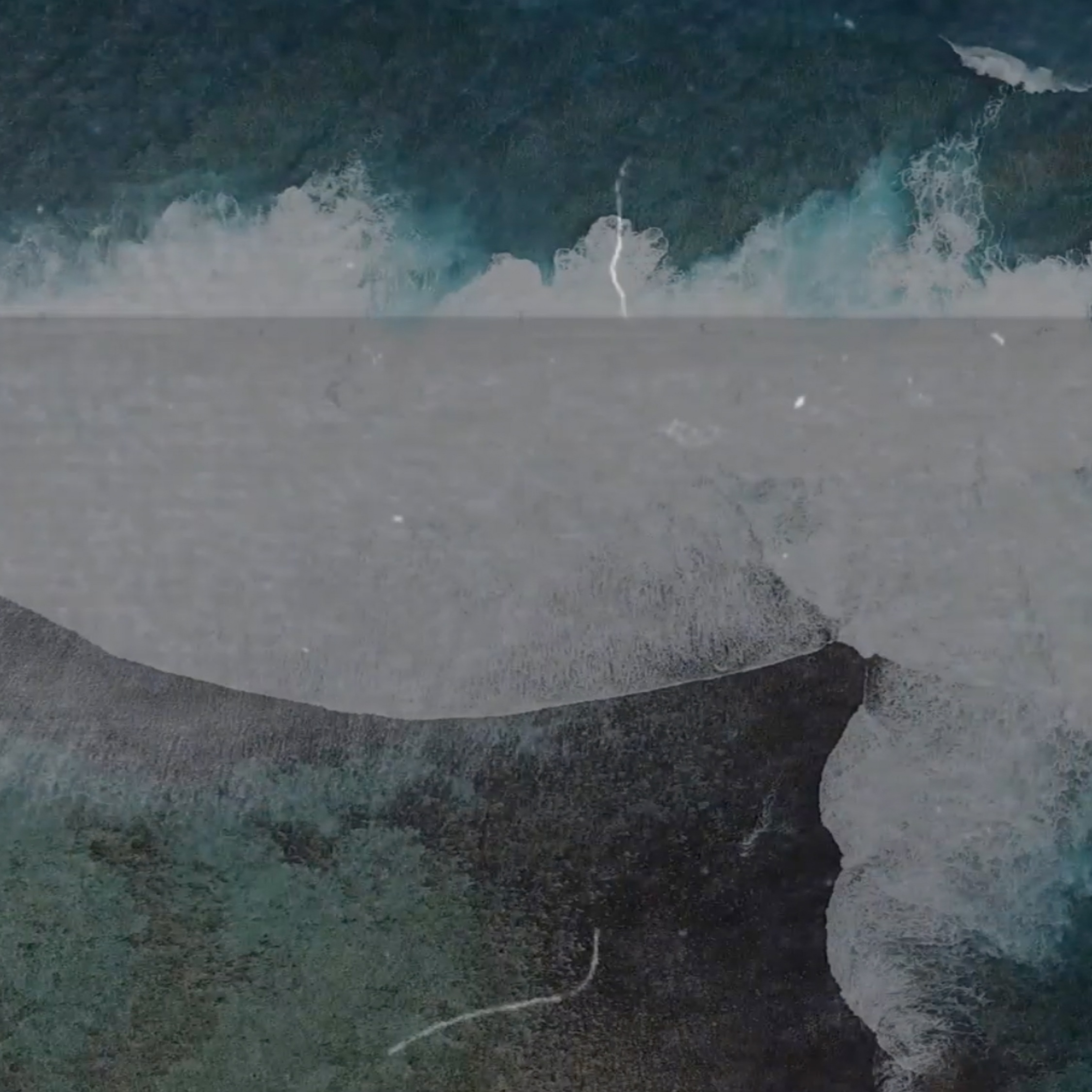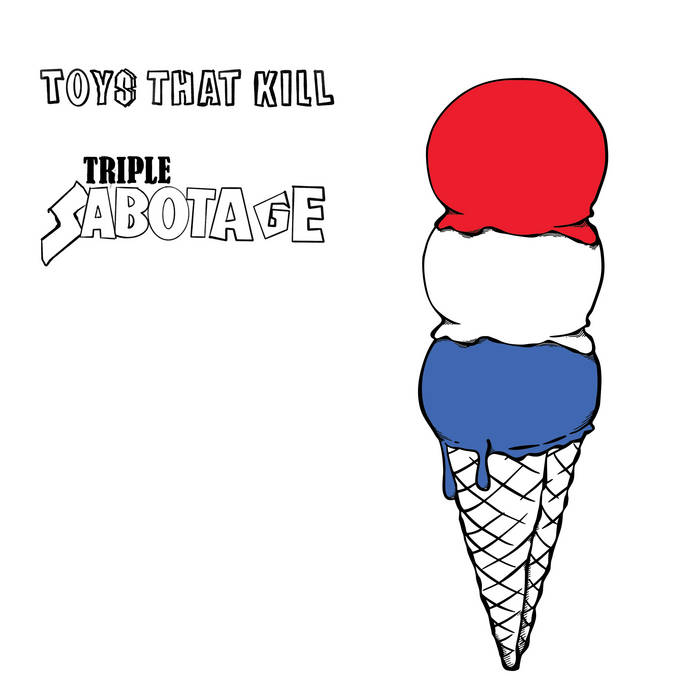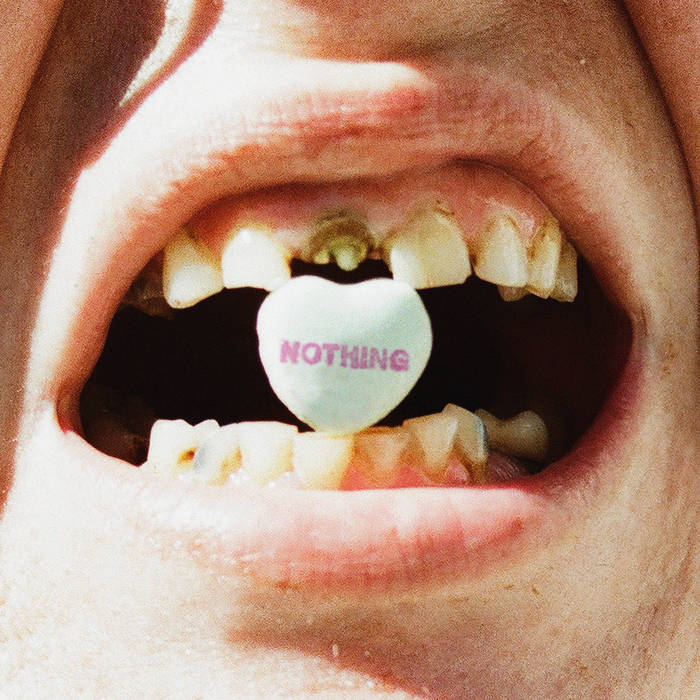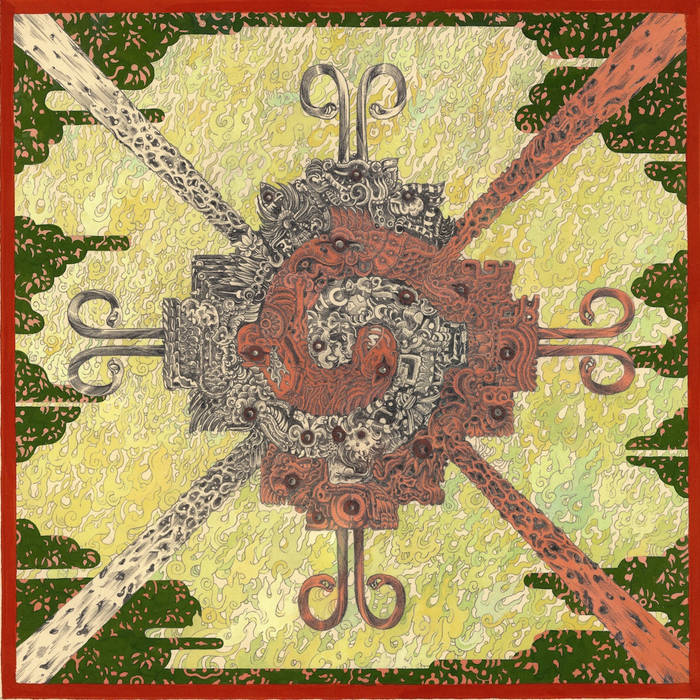Writing this review doesn’t just lead me to praise the merits of French Post-Rock patron saints BRUIT ≤. It’s also a way to pay homage to the city of Toulouse, the capital of the Haute-Garonne department.
Toulouse is a cultural hotbed nicknamed “la Ville Rose” (“Pink City”) in a nod to the color of the red bricks of its typical buildings exposed to the southern sun. But above all, it is the city that saw the growth and artistic development of Théophile Antolinos, Clément Libes, Luc Blanchot, and Julien Aoufi. And the one that adopted me 4 years ago, around the time the quartet was making headlines with their debut album. The Machine Is Burning And Now Everyone Knows It Could Happen Again, beyond its resounding success (even before the band signed to Pelagic Records), has established itself as a work never heard before in the Post-music landscape of my country.
Until then, no French band of the genre had allowed themselves such extremeness, whether it be composition, performance, or production. Funnily enough, this record awakened the feeling that there was indeed something of Toulouse in the music of BRUIT ≤. Dynamic, without being oppressive. Quiet, without being amorphous (far from it!). And its successor is no exception, in many ways. I’m even tempted to declare: The Age Of Ephemerality IS Toulouse. Three of the four places that hosted its creation are located there, including the old Gesu’s Church. BRUIT ≤ took advantage of its reverb, as well as its organ over 150 years old, to record some of the takes on this album. But also, to bring together what I can only call the Avengers of the Toulouse scene. The brothers Jean and Rémi Fossat (Slift), Olivier Lolmède (Mourir, ex-Plebeian Grandstand), Simon Chaubard (Plebeian Grandstand, Urge, Orme, LIIE…), Florian Soulier (Zelezna, Lombre) and Mathieu Félix (Orme, Urge) form an orchestra of electric guitars carrying feedback and noise. So, there you have it, this representation of BRUIT ≤’s roots and entourage is not the most highlighted and developed thing in the official communication for this release. This is probably not the band’s primary goal either. As you’ll have understood, it was important to me to underline it, and to salute those who contributed to the titanic work that gave birth to The Age Of Ephemerality.
“Everything that can be technically achieved will be. All possible combinations will be exhaustively tested.” These premonitory words of Dennis Gabor, a 20th-century Hungarian engineer and physicist, summarize the entire concept at the heart of this album. You don’t need to be a science PhD student to see a reflection of our modern world engaged in an endless race for progress, at the expense of our planet. Avalanches of data sold to GAFAM, machine learning, artificial intelligence… Obviously, against the backdrop of the rise of fascism. Of course, these subjects aren’t addressed through lyrics here, with BRUIT ≤ retaining their instrumental format. But the dark cloud of techno-anxiety hovers over these five new pieces of music, peppered here and there with samples of pro-futurist speeches. However, there’s probably another parallel to be drawn with this quote from Gabor. BRUIT ≤ was already known for bringing together traditional instruments and modern tools. As if only logical at this point, The Age of Ephemerality pushes the boundaries of experimentation even further.
Leading the way, “Ephemeral” creates an initial surprise with its short length and incredible efficiency, which in itself remains rare enough in Post-Rock to be noted. Once the string intro is over, we’re greeted by the heaviest and darkest incarnation of BRUIT ≤. Like a continuation of The Machine Is Burning…”, which closed their previous LP, it descends a torrent of larsens and shrill strings, with desperate sounds. Purest maximalism is expressed, notably as intervenes the aforementioned 100% Toulouse-made guitar orchestra (and that Clément, bassist, serial multi-instrumentalist and producer of the band, was pleased to use multiple times throughout the album as sound design). Reaching its climax early, the calm of the finger-played cello takes over quite abruptly, creating a kind of saving frustration. But what a wonderful introduction, allowing us to find the band as we knew it, although firmly asserting their new era. “Data”, though, takes us into much more innovative territory. Julien’s Math-Rock drums first cross swords with abrasive sounds, for a mix that Aphex Twin would have owned up to. The ambient synths offer a welcome introspective breath, until things pick up again in an ultra-dynamic style. A sort of absolutely prodigious orchestral breakbeat, always set with riffs and layers of victorious guitars. Building and managing their climaxes like no one else, BRUIT ≤ carry us to a glorious tumult, within which we can clearly distinguish the organ of the Gesu’s Church. And once again, breathing takes its rightful place, with this conclusion on a Nils Frahm-style piano, accompanied by a tired acoustic guitar.
“Progress/Regress” continues this calming momentum and its melancholic, tearfully beautiful finger-played guitar theme acts as a guide. Here’s the entry into the most “traditional” Post-Rock part of the album. It harks back to the foundations laid by GY!BE… although I even detect a hint of Radiohead, dare I say Jeff Buckley? Its evolution gives scope to a cello with an immediately striking melody, enveloping in a cocoon of tranquility… Until heaviness and distortion return in full force, transitioning into a defiant, even provocative, industrial finale. Right after, “Techno-Slavery/Vandalism” puts beauty back at the center of sensations, aided by its cinematic string arrangements, gradually joined by drums and hypnotic modular synths. This is again the mark of an incomparable musicality, and a fascinating construction, without giving the impression of repeating its structures. And after another chaotic conclusion, monastic choirs plunge us back into a touching introspection. Even having had ample proof of BRUIT ≤’s total surpassing on these first 4 tracks, “The Intoxication Of Power” drives the point home with honors. As if reminding their legendary concert at Roadburn 2022, the opening of these epic concluding 13 minutes involves a brass ensemble consisting of a trumpet, a French horn, a trombone and a bass trombone. One ultimate memorable theme takes shape, anchoring itself durably before the main instruments enter the stage one last time. The groovy Trip Hop rhythm is one with Théo’s guitar melody, venturing into Shoegaze territory. But Luc and Clément’s strings multiply in magnitude as the track progresses, managing not to be extinguished by distorsion, but retaining all its pure beauty. This continues until reaching a more tormented tipping point in the last third. BRUIT ≤ leaves us in a final maelstrom of insane intensity, one that sends shivers all over all bodies around. And one that definitively seals their status as THE supreme Post-Rock figurehead, not just in France, but on a global scale.
‘Masterpiece’ seems relegated to the rank of euphemism to describe The Age of Ephemerality. This is bigger than all of us, bigger than what music is capable of. It’s an album that will outlive us, once our civilization has collapsed.



